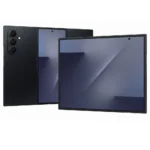Honda Motor Co. is cutting its electrification investment plans by 30% through 2031, signaling a strategic retreat from aggressive electric vehicle targets as global EV adoption slows.
The Japanese automaker announced Tuesday it will reduce spending to ¥7 trillion ($48.5 billion) through the fiscal year ending March 2031, down from the roughly ¥10 trillion previously allocated. Honda is redirecting resources toward hybrid vehicles, acknowledging that pure electric sales haven’t matched earlier forecasts.
This pullback reflects broader industry challenges as consumers remain hesitant about EVs due to concerns over charging infrastructure, battery range and higher prices compared to conventional vehicles.
Honda isn’t alone in reconsidering its electric ambitions. Several major automakers have recently tempered their EV timelines as the market shows signs of cooling, particularly in key regions like North America and parts of Europe.
The company has not specified which EV projects might be delayed or canceled due to the revised spending plan, nor detailed exactly how much additional investment will flow to hybrid technology development.
This shift highlights the auto industry’s struggle to balance long-term electrification goals with short-term market realities and profitability concerns. For Honda, hybrids represent a more immediately viable path to reducing emissions while maintaining sales volumes.




